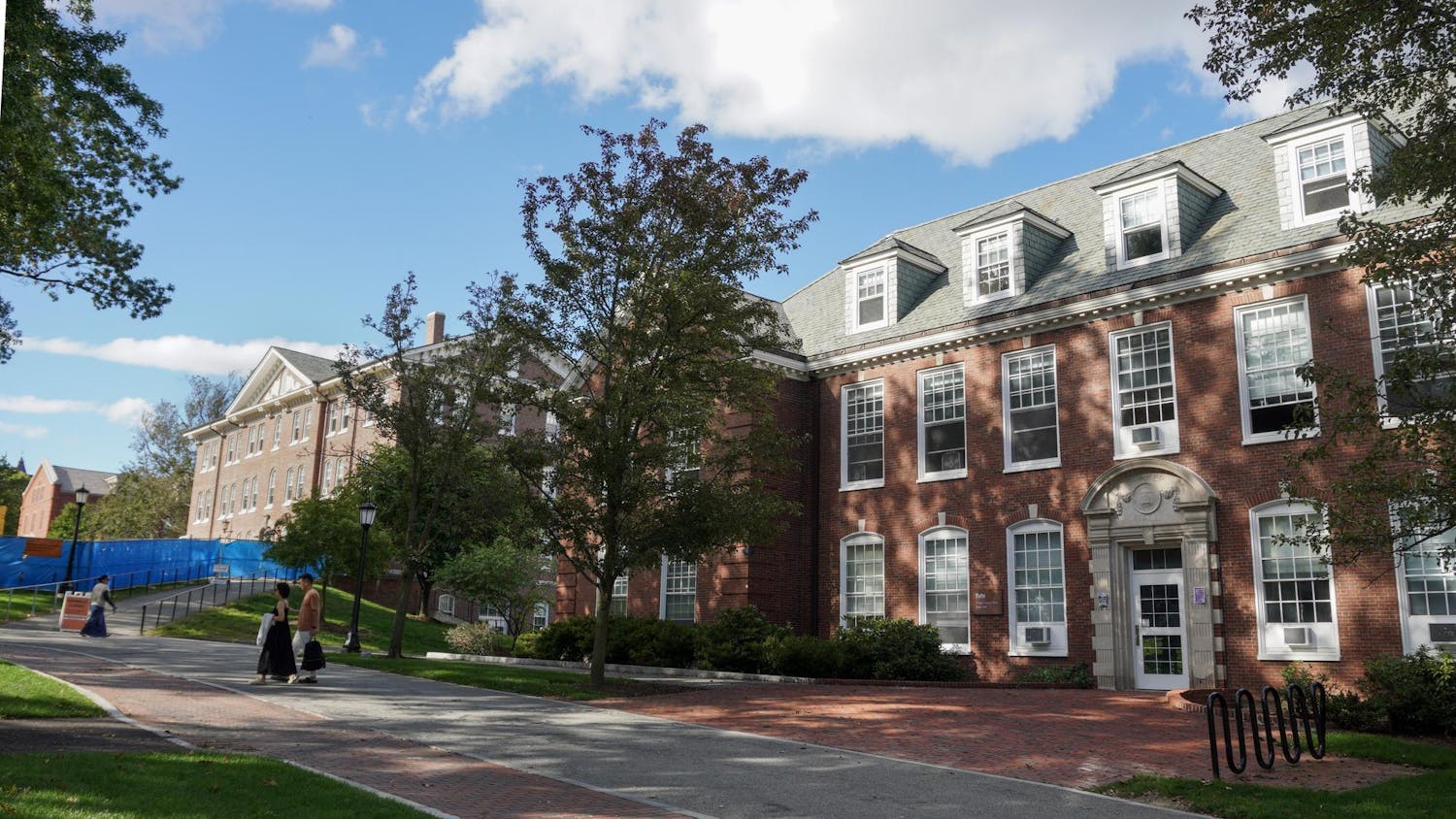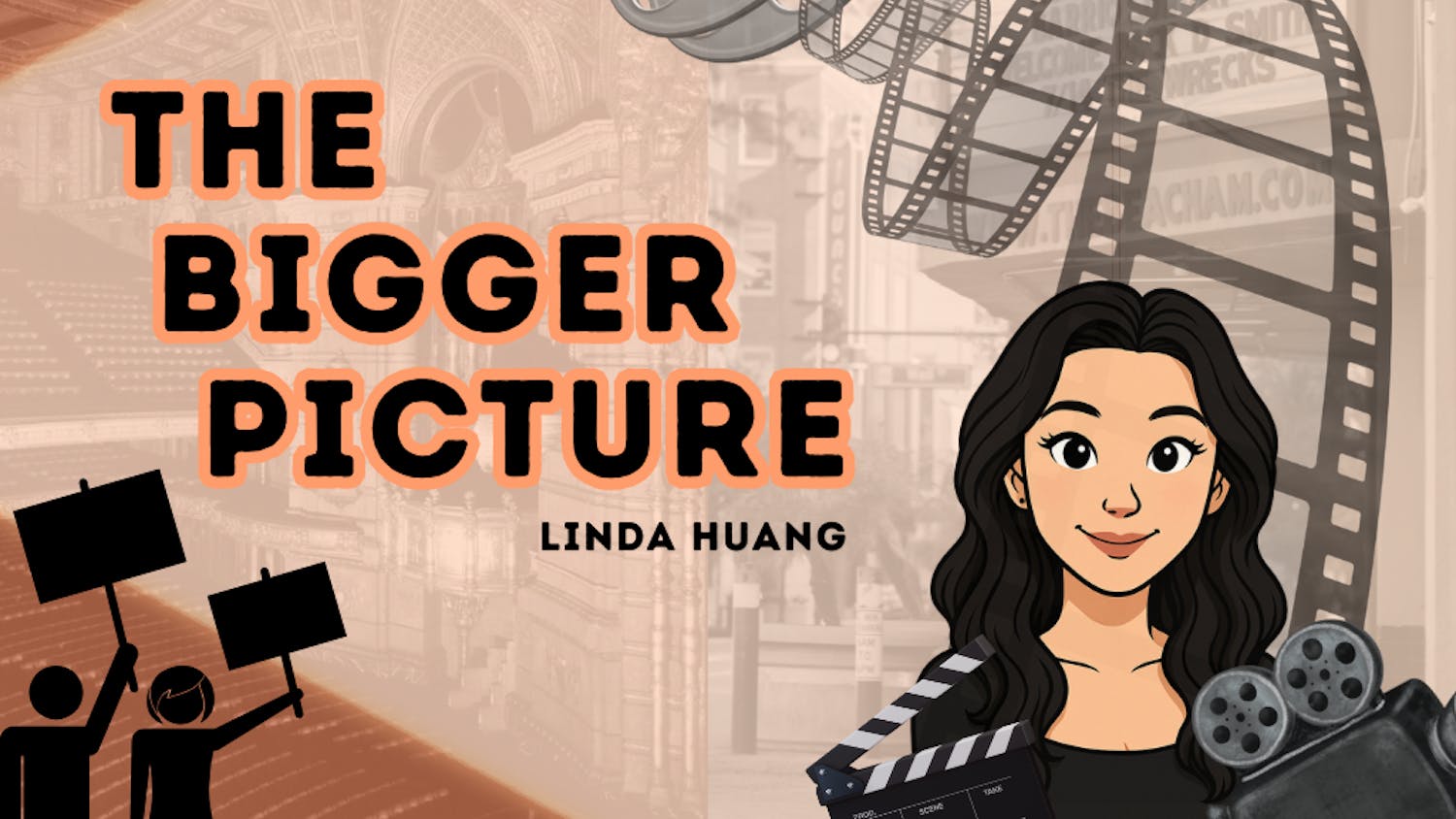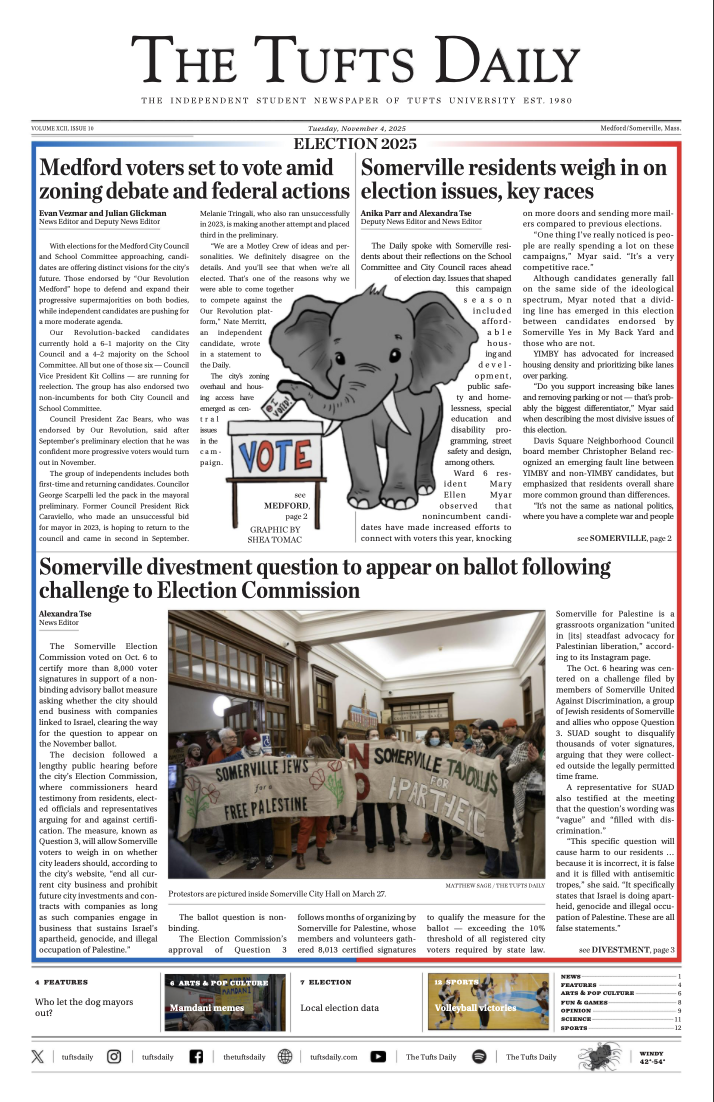Etgar Keret is a brilliant writer. Brilliant. The Israeli writer’s surreal stories inspire out-loud laughter through wicked, playful plots and genuine surprise at those plots’ twists. His complicated characters offer insight into humanity, with all of its light and darkness. And Keret’s endearing and charismatic stage presence no doubt engaged the audience when the writer spoke at Tufts on Thursday afternoon.
I admire his talent. So why did I miss the opportunity to see him at my university? The answer lies in the nature of Keret’s appearance. Called “The dark and surreal world of Israeli fiction,” last week's event with Keret was sponsored by Tufts Students for Two States. That self-described pro-Israel organization is one of several Zionist student groups on campus and is affiliated with Tufts Hillel. As an organization that declares itself to be “deeply committed to supporting Israel,” Hillel promotes Zionism — the defense of the notion of a Jewish state — by a variety of means. One of these is the sponsorship of cultural events on campus.
On its website, Tufts Hillel states a commitment to supporting Israel as a “Jewish democratic” state. Unfortunately, those two attributes are in contradiction. A state cannot simultaneously exist for one group of people and have equal rights for all. Indeed, even a Jewish state established on uninhabited land would inevitably pose an existential problem should non-Jews visit or migrate to that state. But Israel was not built on uninhabited land.Palestine, as it was called before the establishment of the State of Israel, was a place where Jews lived in long-standing communities among Christian and Muslim Arabs. The creation of Israel as a state came not through a vote or another democratic measure but rather through the seizure of land by force.
In April 1948, for example, Zionist paramilitaries carried out an infamous massacre at Deir Yassin — a Palestinian village outside of Jerusalem. Using guns and grenades as weapons, paramilitaries slaughtered much of Deir Yassin’s population and terrorized the remainder into fleeing. Just over a month later, Zionists unilaterally announced the establishment of Israel as a Jewish state on land whose majority population was not Jewish. Zionists celebrate this as the Israeli Declaration and subsequent War of Independence, but Palestinians and their supporters call these events Al Nakba, or The Catastrophe. Each such event terrified Palestinians in other villages to flee out of fear of Zionist violence. It was only through this use of war and terror that Zionists forced hundreds of thousands of Palestinians into exile, reducing the once Arab majority to an oppressed minority in the new Jewish state and creating a refugee population scattered across the Middle East and around the globe.
Every subsequent act by the Israeli state privileging Jewish citizenship necessarily came at the expense of Palestinians. Israel passed the Law of Return, for example, which offered Jewish people the right to come to Israel and receive citizenship, no matter their country of origin. The state simultaneously denied Palestinians the right to return home, even those who held in their hands the keys to houses from which they were expelled.It is because of these separate legal regimes for Jewish Israelis and Palestinian Arabs that Israel is compared to Apartheid-era South Africa and the Jim Crow era in the U.S. South.
Palestinian activists have called on people around the world to boycott Israeli cultural events. This is because these events obscure the reality that Israel legally and explicitly privileges Jewish identity, using violence to repress Palestinians within the borders it controls and restrict the movement of Palestinians via those borders. Moreover, such events marginalize the voices of Palestinians. Last week’s event at Tufts provides an example of this very problem. The flyer advertising the event with Keret promised a discussion that would discuss “racism on all sides” — among Israelis and Palestinians. Keret, after all, is critical of the Israeli state. But a discussion of Israel on a campus in the United States cannot count as its sole discussants Zionists and Israelis and then honestly consider it a critical conversation. The omission of any Palestinian perspective is blatant and inexcusable. The problem with claiming a balanced discussion at Tufts when its participants at the front of the room are decidedly one-sided goes hand-in-hand with the casting of the struggle between Israel and the Palestinians as a balanced one with flaws on “all sides.” After all, Israel occupies Palestine's land, but there is no corresponding Palestinian occupation of Israeli land. Israel is building a wall across Palestinian land, but there is no Palestinian wall that Israelis have to negotiate. Through administration of borders and the use of checkpoints across the West Bank, Israel controls the movement of Palestinians. But there is no Palestinian force restricting the travel of Israelis. The list could go on.
This undeniable difference in power leads to another reason to heed the cultural boycott of Israel. Tufts Hillel explains on its website that it does programming on campus to “allow students to explore Israel’s society.” That very society denies Palestinian artists, writers and academics the right to travel the world to engage in cultural and scholarly exchange. Indeed, at the same time as Etgar Keret is traveling to the U.S., Palestinian poet Dareen Tartour is confined to her home in the Arab town of Reineh. Tartour was arrested and imprisoned by Israel last year for performing a poem in a YouTube video — a poem that Israel deemed a security threat. Tartour was released from prison this summer but remains under house arrest. And earlier this month, Israel denied the right of Adam Hanieh, a professor at the School of Oriental and African Studies at the University of London, to enter Palestine and give a series of lectures at Birzeit University in the West Bank.
Someday, Israeli apartheid will fall, just like the racist legal regimes in South Africa and the southern United States. When that happens, Palestinian artists and scholars will be able to engage with audiences globally, unfettered by borders and police. Jewish Israeli artists and scholars will be able to offer their talents and insights without their speaking engagements being deployed as weapons in the war for Israel’s legitimacy. When those things happen, I look forward to seeing Etgar Keret speak — as an equal with his Palestinian colleagues. Until then, we boycott.
Editor’s note: If you would like to send your response or make an op-ed contribution to the Opinion section, please email us at tuftsdailyoped@gmail.com. The Opinion section looks forward to hearing from you.
More from The Tufts Daily





